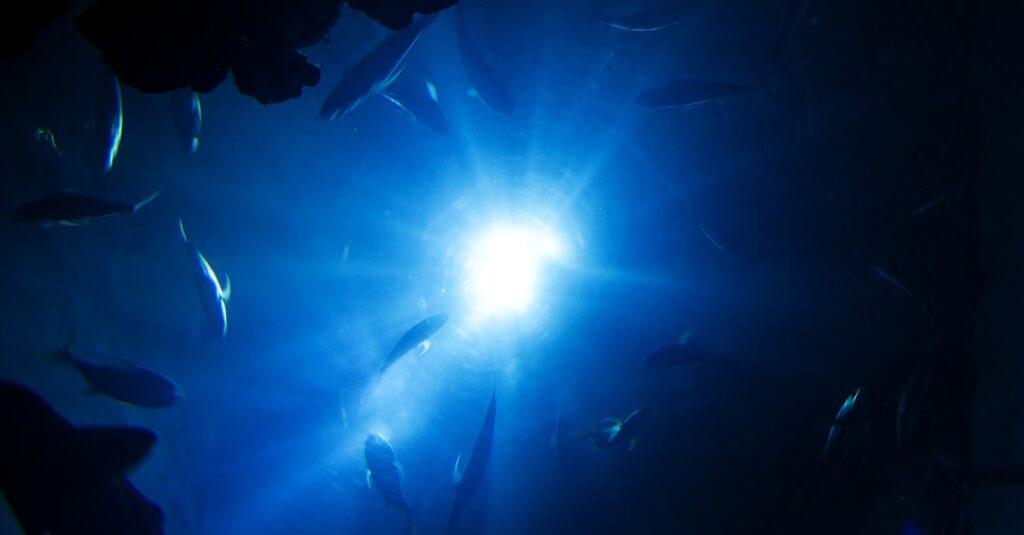

Top professional freedivers may dive to depths of hundreds of meters. Beginners should start with dives of only a few meters while mastering apnea and ear equalization techniques, before gradually working up to deeper dives.
Water pressure while diving can be massive, placing huge strains on the body. We do not know the exact maximum depth which a human can dive to without being crushed but trained and experienced divers may be able to dive deeply more safely than beginners. The current depth record for freediving is 253m.
In competitive freediving, typical depths will depend on the specific category. The deepest freedive was a “no limits” 253 meter freedive by Herbert Nitsch. In recreational freediving, depth should depend on the training and experience of the freediver and the safety of the diving environment. Decompression sickness (DCS) is less common in freediving than scuba diving, but the risk still exists.
The True Story Book of Freediving Champion Audrey Mestre and the Story of Her Death
View on Amazon: The Last Attempt (Opens new tab)


Top rated read
If you want to know more about how deep freedivers generally dive, then this article can help. We tell you more about freediving safely, freediving depth records, the risks which freedivers can face from decompression and massive water pressures at depth.
How deep can you freedive safely?
How deep you can freedive safely could vary considerably from a meter or two for complete beginners to hundreds of meters for the most accomplished professional freedivers in the world.
The science of freediving is still not fully understood but advanced freedivers may perform feats which are extremely dangerous and/or impossible for a less experienced freediver. With training and mastery of apnea (breath-holding), ear pressure equalization, and mental resilience techniques, the depths a diver can safely reach may increase.
Beginner freediving courses often teach participants to freedive safely down to depths of around 10-15m. Even at this relatively shallow depth, training in apnea and ear equalization are important to reduce the risks of blacking out in the water or experiencing ear barotrauma.
For more information on beginner depths, check out our article; how deep do beginner freedivers go (opens new tab).
Whatever your experience and diving depth, you should always be accompanied by a diving buddy and should never freedive alone in case you get into difficulties in the water.
What is the deepest ever free dive?
The deepest freedive in the Guinness Book of Records was a 253 m (830 ft) “no limits” freedive, by Herbert Nitsch in Santorini, Greece, in 2012. Nitsch experienced decompression sickness after this extremely deep dive.
In the no limits category of freedive, divers can descend using the means of their choice, including weights or a sled. This allows them to go far deeper than descending solely with their own efforts. There are other categories of freediving alongside no limits.
The deepest constant weight dive was 130m by a male freediver, and 114m by a female diver. The record for a variable weight freedive is 150m for men and 130m for women.
How deep can you free dive without decompression?
Decompression sickness (DCS), (“the bends”) is a condition which can cause pain, internal injury, and death. It occurs when nitrogen gas dissolved in the bloodstream under the high water pressures of a diving descent is released from the blood too quickly as the diver ascends.
DCS is less common in freediving than scuba diving but it is still a risk, especially when undertaking longer, deeper or more numerous dives.
A slower return to the surface allows nitrogen to dissolve gradually and safely out of blood and body tissue. When divers ascend too fast, the pressure on their body reduces too quickly and dissolved nitrogen gas is released in bubbles which can cause painful and dangerous blockages throughout the body. Bubbles can lead to ruptured blood vessels in the lungs, heart attack, or stroke.
Causal links between DCS and freediving are the subject of ongoing research and investigation although there is mounting evidence to connect them. The US National Institute of Health (NIH) has recorded +90 cases of DCS after freediving.
At what depth will water crush you?
There is no definitive depth beyond which we know that a diver will be crushed by water. When study of freediving began many decades ago, some physiologists believed that humans would not be able to dive to depths below 30-40 meters, as the pressure of the water would dangerously crush the lungs.
Today freedivers have gone well beyond these early estimates and proved them wrong, with competitive freedivers regularly exceeding 100m dives and the world freediving depth record being over 200m. (Scuba divers may go even deeper, with divers reaching 300m depths, and even lower with the aid of atmospheric suits.)
Being underwater exerts greater pressure on the human body. Even at depths of a few meters, the forces experienced underwater are significant and deep dives can put the body under massive pressure. For example, at 10m below the surface, the pressure will be double normal atmospheric pressure. For each additional 10m of depth, water pressure increases by one whole atmosphere at sea level.
At the same time, gas volumes decrease in inverse proportion to rising pressure. This means that lungs, ears and sinus airspaces in our bodies become significantly compressed as we dive. At a depth of 10 meters, our lung volume is reduced to half its normal size.
Training and practice in breathing and breath-hold techniques can help to manage some of the risks from pressure, hypoxia (low blood oxygen) and hypercapnia (high blood carbon dioxide).
References
https://www.deepbluediving.org/maximum-depth-with-gear/
https://www.deeperblue.com/decompression-and-freediving-what-are-the-real-risks/
https://sciencing.com/can-oceans-pressure-crush-you-12458.html
